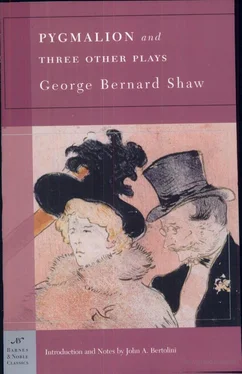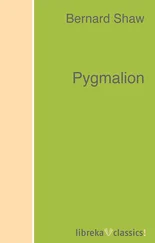The Heartbreak people neither could nor would do anything of the sort. With their heads as full of the Anticipations [240] Collection of essays published in 1902.
of Mr H. G. Wells as the heads of our actual rulers were empty even of the anticipations of Erasmus or Sir Thomas More, they refused the drudgery of politics, and would have made a very poor job of it if they had changed their minds. Not that they would have been allowed to meddle anyhow, as only through the accident of being a hereditary peer can anyone in these days of Votes for Everybody get into parliament if handicapped by a serious modern cultural equipment; but if they had, their habit of living in a vacuum would have left them helpless and ineffective in public affairs. Even in private life they were often helpless wasters of their inheritance, like the people in Tchekov’s Cherry Orchard. Even those who lived within their incomes were really kept going by their solicitors and agents, being unable to manage an estate or run a business without continual prompting from those who have to learn how to do such things or starve.
From what is called Democracy no corrective to this state of things could be hoped. It is said that every people has the Government it deserves. It is more to the point that every Government has the electorate it deserves; for the orators of the front bench can edify or debauch an ignorant electorate at will. Thus our democracy moves in a vicious circle of reciprocal worthiness and unworthiness.
Nature’s way of dealing with unhealthy conditions is unfortunately not one that compels us to conduct a solvent hygiene on a cash basis. She demoralizes us with long credits and reckless overdrafts, and then pulls us up cruelly with catastrophic bankruptcies. Take, for example, common domestic sanitation. A whole city generation may neglect it utterly and scandalously, if not with absolute impunity, yet without any evil consequences that anyone thinks of tracing to it. In a hospital two generations of medical students may tolerate dirt and carelessness, and then go out into general practice to spread the doctrine that fresh air is a fad, and sanitation an imposture set up to make profits for plumbers. Then suddenly Nature takes her revenge. She strikes at the city with a pestilence and at the hospital with an epidemic of hospital gangrene, slaughtering right and left until the innocent young have paid for the guilty old, and the account is balanced. And then she goes to sleep again and gives another period of credit, with the same result.
This is what has just happened in our political hygiene. Political science has been as recklessly neglected by Governments and electorates during my lifetime as sanitary science was in the days of Charles the Second. In international relations diplomacy has been a boyishly lawless affair of family intrigues, commercial and territorial brigandage, torpors of pseudo-goodnature produced by laziness and spasms of ferocious activity produced by terror. But in these islands we muddled through. Nature gave us a longer credit than she gave to France or Germany or Russia. To British centenarians who died in their beds in 1914, any dread of having to hide underground in London from the shells of an enemy seemed more remote and fantastic than a dread of the appearance of a colony of cobras and rattlesnakes in Kensington Gardens. In the prophetic works of Charles Dickens we were warned against many evils which have since come to pass; but of the evil of being slaughtered by a foreign foe on our own doorsteps there was no shadow. Nature gave us a very long credit; and we abused it to the utmost. But when she struck at last she struck with a vengeance. For four years she smote our first-born and heaped on us plagues of which Egypt never dreamed. They were all as preventible as the great Plague of London, and came solely because they had not been prevented. They were not undone by winning the war. The earth is still bursting with the dead bodies of the victors.
It is difficult to say whether indifference and neglect are worse than false doctrine; but Heartbreak House and Horseback Hall unfortunately suffered from both. For half a century before the war civilization had been going to the devil very precipitately under the influence of a pseudo-science as disastrous as the blackest Calvinism. Calvinism taught that as we are predestinately saved or damned, nothing that we can do can alter our destiny. Still, as Calvinism gave the individual no clue as to whether he had drawn a lucky number or an unlucky one, it left him a fairly strong interest in encouraging his hopes of salvation and allaying his fear of damnation by behaving as one of the elect might be expected to behave rather than as one of the reprobate. But in the middle of the nineteenth century naturalists and physicists assured the world, in the name of Science, that salvation and damnation are all nonsense, and that predestination is the central truth of religion, inasmuch as human beings are produced by their environment, their sins and good deeds being only a series of chemical and mechanical reactions over which they have no control. Such figments as mind, choice, purpose, conscience, will, and so forth, are, they taught, mere illusions, produced because they are useful in the continual struggle of the human machine to maintain its environment in a favorable condition, a process incidentally involving the ruthless destruction or subjection of its competitors for the supply (assumed to be limited) of subsistence available. We taught Prussia this religion; and Prussia bettered our instruction so effectively that we presently found ourselves confronted with the necessity of destroying Prussia to prevent Prussia destroying us. And that has just ended in each destroying the other to an extent doubtfully reparable in our time.
It may be asked how so imbecile and dangerous a creed ever came to be accepted by intelligent beings. I will answer that question more fully in my next volume of plays, [241] Reference to Back to Methuselah (1921), a cycle of five plays by Shaw that revisit the themes of evolution and human destiny.
which will be entirely devoted to the subject. For the present I will only say that there were better reasons than the obvious one that such sham science as this opened a scientific career to very stupid men, and all the other careers to shameless rascals, provided they were industrious enough. It is true that this motive operated very powerfully; but when the new departure in scientific doctrine which is associated with the name of the great naturalist Charles Darwin began, it was not only a reaction against a barbarous pseudo-evangelical teleology intolerably obstructive to all scientific progress, but was accompanied, as it happened, by discoveries of extraordinary interest in physics, chemistry, and that lifeless method of evolution which its investigators called Natural Selection. Howbeit, there was only one result possible in the ethical sphere, and that was the banishment of conscience from human affairs, or, as Samuel Butler vehemently put it, “of mind from the universe.”
Now Heartbreak House, with Butler and Bergson and Scott Haldane alongside Blake and the other major poets on its shelves (to say nothing of Wagner and the tone poets), [242] Composers of symphonic poems, such as Nikolay Rimsky-Korsakov (1844-1908).
was not so completely blinded by the doltish materialism of the laboratories as the uncultured world outside. But being an idle house it was a hypochondriacal house, always running after cures. It would stop eating meat, not on valid Shelleyan [243] Like the English poet Percy Bysshe Shelley (1792 — 1822), Shaw was a vegetarian.
grounds, but in order to get rid of a bogey called Uric Acid; and it would actually let you pull all its teeth out to exorcise another demon named Pyorrhea. [244] Gum disease.
It was superstitious, and addicted to table-rapping, materialization seances, clairvoyance, palmistry, crystal-gazing and the like to such an extent that it may be doubted whether ever before in the history of the world did soothsayers, astrologers, and unregistered therapeutic specialists of all sorts flourish as they did during this half century of the drift to the abyss. The registered doctors and surgeons were hard put to it to compete with the unregistered. They were not clever enough to appeal to the imagination and sociability of the Heartbreakers by the arts of the actor, the orator, the poet, the winning conversationalist. They had to fall back coarsely on the terror of infection and death. They prescribed inoculations and operations. Whatever part of a human being could be cut out without necessarily killing him they cut out; and he often died (unnecessarily of course) in consequence. From such trifles as uvulas and tonsils they went on to ovaries and appendices until at last no one’s inside was safe. They explained that the human intestine was too long, and that nothing could make a child of Adam healthy except short circuiting the pylorus [245] Opening from the stomach into the intestine.
by cutting a length out of the lower intestine and fastening it directly to the stomach. As their mechanist theory taught them that medicine was the business of the chemist’s laboratory, and surgery of the carpenter’s shop, and also that Science (by which they meant their practices) was so important that no consideration for the interests of any individual creature, whether frog or philosopher, much less the vulgar commonplaces of sentimental ethics, could weigh for a moment against the remotest off-chance of an addition to the body of scientific knowledge, they operated and vivisected and inoculated and lied on a stupendous scale, clamoring for and actually acquiring such legal powers over the bodies of their fellow-citizens as neither king, pope, nor parliament dare ever have claimed. The Inquisition itself was a Liberal institution compared to the General Medical Council.
Читать дальше












